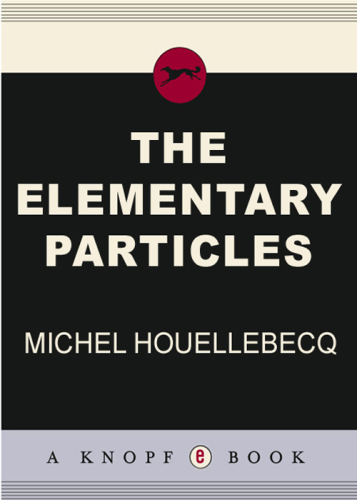
The Elementary Particles
کتاب های مرتبط
- اطلاعات
- نقد و بررسی
- دیدگاه کاربران
نقد و بررسی

October 30, 2000
Houellebecq's controversial novel, which caused an uproar in France last year, finally reaches our shores. Whether it will make similar waves here remains to be seen, but its coolly didactic themes and schematic characterizations keep it from transcending faddish success. The story follows two half brothers, Michel Djerzinski and Bruno Cl ment. They have in common a minor Messalina of a mother, Janine Ceccaldi, who contributed most effectively to their upbringing by abandoning them--Bruno to his maternal grandmother, and Michel to Janine's second husband's mother. Bruno's is the harder life. Abused by fellow students at a boarding school, he grows into a perpetually horny adolescence, his sexual advances always rebuffed because he is ugly and devoid of personal charm. He spends the '70s and '80s exposing himself to young girls or masturbating. After his first marriage fails, he meets Christiane at an "alternative" vacation compound with a reputation for free love, and together they embark on a tawdry swingers' odyssey. Meanwhile, Michel (whose story is told in counterpoint) is so emotionally remote that he is unable to kiss his first girlfriend, the astonishingly beautiful Annabelle. In college, he loses sight of her and devotes himself to science, finally becoming a molecular biologist. Then, at 40, he meets Annabelle again. However, as Houellebecq puts it, "In the midst of the suicide of the West, it was clear that they had no chance." Once death cheats both Bruno and Michel of happiness, Michel develops the basis for eliminating sex by cloning humans. The novel is burdened throughout with Houellebecq's message, which equates sex with consumerism and ever darker fates. The writer also upholds the madonna-whore polarization, pigeonholing his female characters with tiresome predictability. Still, it isn't the ideology that hampers the narrative--it is Houellebecq's touted scientific theorizing, which, far from covering fresh ground, resorts to the shibboleths of popular science. Houellebecq is disgusted with liberal society, but his self-importance and humorlessness overwhelm his characters and finally will tax readers' patience. 40,000 first printing.

June 1, 2000
A literary sensation in France that has already been translated into 22 languages, this novel stars two disparate brothers (same hip Sixties mother but different fathers). The sexually obsessed Bruno is a literary genius manqu, while Michel is a misanthropic biologist who would like to purge humans of their uncontrollable appetites.
Copyright 2000 Library Journal, LLC Used with permission.

Starred review from October 15, 2000
French author Houellebecq's second novel--which scandalized France and ignited a fervent debate over the virtues and vices of liberalism--lives up to its reputation. It's a phenomenal book. Houellebecq has launched a broadside against what he believes to be the decadent culture of the 1960s, which he believes spawned the selfish, narcissistic individualism of contemporary Western civilization. The title refers to the book's relentless existential theme: that society is a fraud, and permissive contemporary culture has enslaved human beings in a world of loneliness and misery. The book recounts the lives of Bruno and Michel Djerzinski, half-brothers born to a Bohemian mother and different fathers. Bruno is a failed academic and sexual obsessive; Michel is an asexual, lonely molecular biologist who envisions the salvation of humanity in a future race of hermaphroditic human clones free of the baser human desires. This pessimistic treatise has been compared favorably--and accurately--to the dystopian worlds of Camus and Huxley. The author is unflinching in the construction of his world, which is full of graphic sexuality. Above all, a remarkable, fascinating contemporary novel.(Reprinted with permission of Booklist, copyright 2000, American Library Association.)

























دیدگاه کاربران